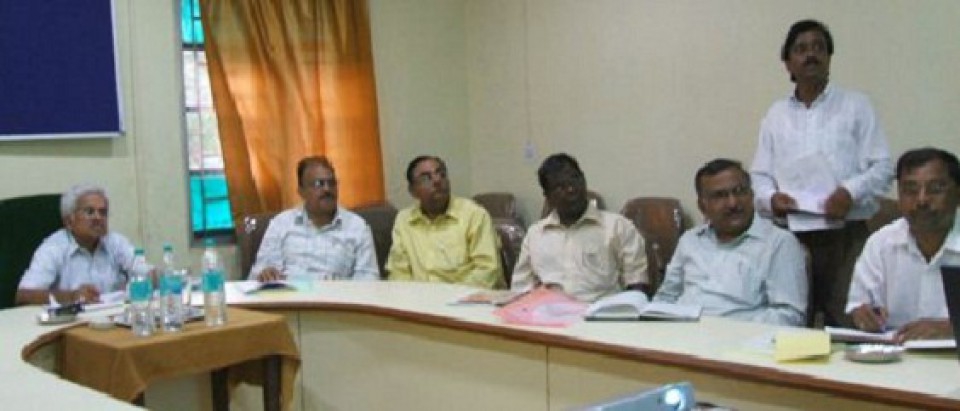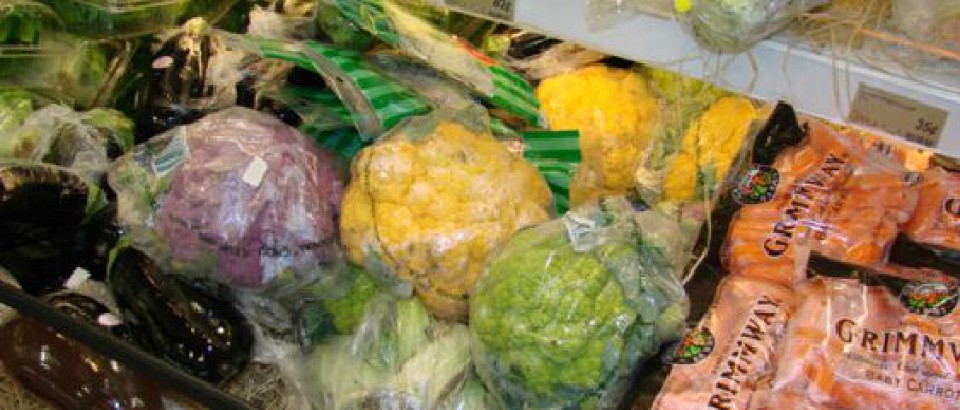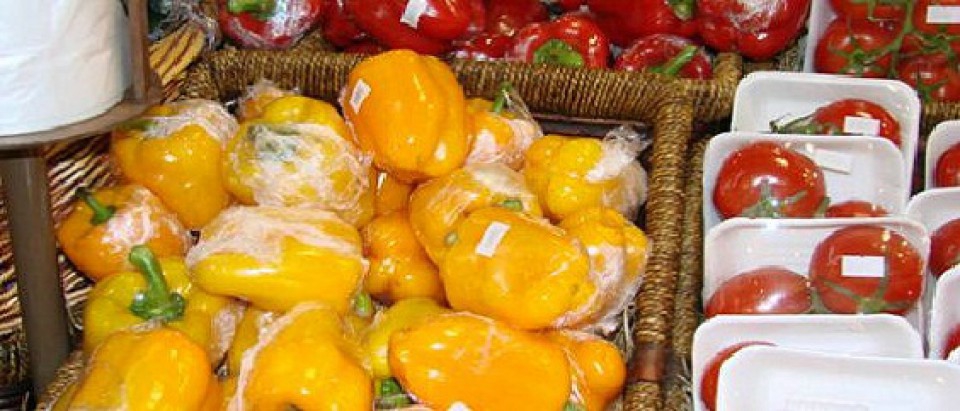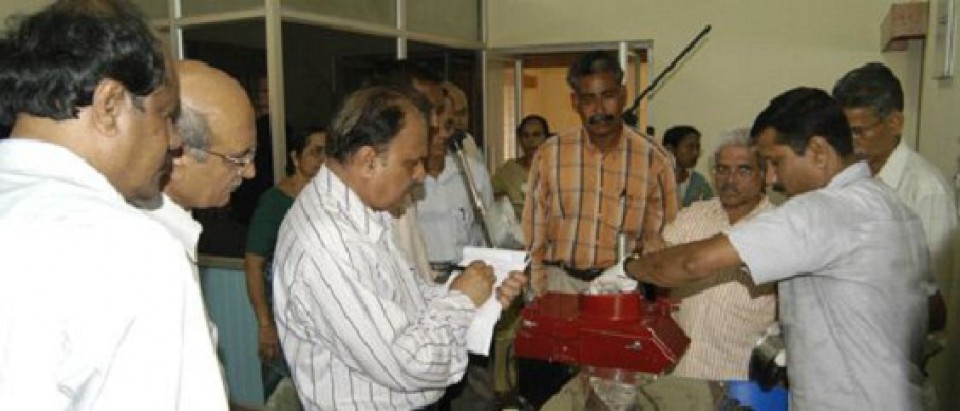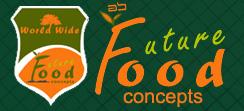 |
|
 |
Vocational Trainings
Training in bakery, fruit & vegetables, preservatives & dairy products Read More…
|
 |
Technological Options
Food projects in area of fruit & vegetables, cereal, oil seeds, spices etc. Read More…
|
 |
Career Options in Food Sector
For admissions & Job seekers & employers in food industry in India & Abroad Read More…
|
 |
New Concepts
New Technologies, products & establishment of colleges of food systems. Read More…
|
 |
Fresh Food Management
Fresh food for retail & exports & their quality management Read More…
|
 |
Arranging Government Grants
Assistance for establishing food industry, infrastructure, development & modernization. Read More…
|
 |
Products Available With Us
Organic Agricultural Inputs, Organic Foods, Food Safety Read More…
|
 |
Services Which We Can Provide
Global Linkages, Technological Sourcing, Consultancy Services, Arrange Grants From Government Read More…
|
Food Safety: The USDA certified experts from USA shall conduct food safety trainings in India and audits in food Industry as also provide certificates to trainees from time to time depending upon their travel plans from USA and availability.
 |
Food safety and quality assurance: The quality assurance systems in the food industry are used much extensively at present as these are much more comprehensive in scope than quality control programs. They include the inspection, testing and monitoring activities of quality control programs along with additional activities that are devoted to prevention of food safety hazards and quality defects.
ISO 9000 quality system standards: These were introduced in 1987 & revised in 1994 and again in 2000, resulting in following three standards;
- ISO 9000 : 2000 – Quality management systems, fundamentals and vocabulary.
- ISO 9001 : 2000 — Quality management system requirements.
- ISO 9004 : 2000 — Quality management system guidelines for performance
improvements.
GMP’s and HACCP: The good manufacturing practices are used for monitoring the safety of consumer foods and for inspection of establishments that process, package, handle and store foods. The emergence of HACCP system for achieving food safety has reinforced the importance of GMP’s to the extent that the prerequisite programs are considered as the necessary foundation on which an effective HACCP system is built.
HACCP approach aims to introduce a systematic method of identifying and controlling food safety hazard at the raw material, the production, processing and manufacturing activities. HACCP simplifies public health protection by identifying the most critical control points and provide management changes to monitor them. It is reported that by ISO-9002 certification in a biscuit industry, the overall quality of biscuits improved by 16% over a period of 18 months with the above quality intervention.
The universally recognized seven principles of HACCP are:
• Principle 1 – Conduct hazard analysis
• Principle 2 – Determine critical control points.
• Principle 3 – Establish critical limits.
• Principle 4 – Establish monitoring procedures
• Principle 5 – Establish Corrective action procedures.
• Principle 6 – Establish verification procedures.
• Principle 7 – Establish record-keeping and documentation procedures.
As per the requirement of WTO under SPS & TBT clauses for export of food products the adherence to food safety norms (HACCP) covered under Codex standards is mandatory. Hence by observing HACCP & GMP the product of high quality at competitive price is possible.
TQM (Total Quality Management): The definition of quality is described as “fitness for purpose or use” to “the totality of service that beer on its ability to satisfy stated or implied needs”. The concept of TQM in food industry is adopted recently and it is the integrated organizational approach in delighting customer by meeting their expectations and is concerned with the integration of all the efforts in organization towards quality improvement, quality development and quality maintainance.
Toxic residues: Contamination with toxic residues is a limitation in export of food commodities and their products. In India as per the graph below around 20% of the food commodities are contaminated with toxic residues beyond maximum limits for such commodities. Such lots face difficulties in exports.
Quality Mapping: Quality Assurance, Codex Standards, Human Resource Development by training various stake holders engaged in food business and preparation of quality assurance by training modules/ Guides/Manuals, development of sector specific Codes of Practices such as GMP, GHP, GAP etc. from farm to fork and their implementation.
To help industry in Total Quality Management (TQM) including ISO-9000, ISO14000, Hazard Analysis and Critical Control Points (HACCP), Good Manufacturing Practices (GMP), Good Hygienic Practices (GHP), etc.
- To prepare industry help solve their product and process problems with time to time monitoring.
- To prepare them to face the global competition in International trade in post WTO
- To enable adherence to stringent quality & hygiene norms
- To enhance product acceptance by overseas buyers
- To keep Indian industry technologically abreast of internationally best practices.


